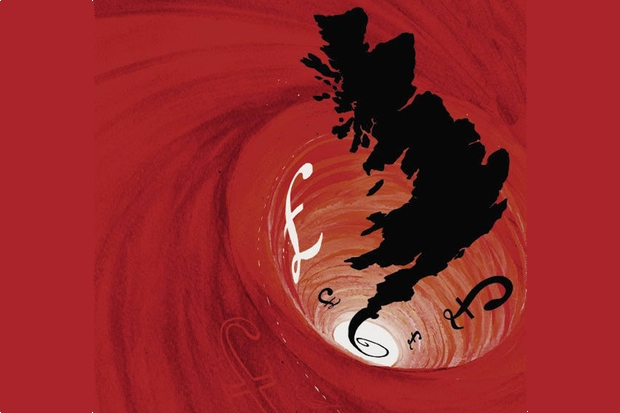It was at the Mansion House dinner last year that a City gent two seats away announced himself to be the custodian of one of London’s ‘dark pools’. The phrase sounded pleasingly Tolkienian but his first explanation — an electronic exchange in which large share transactions are completed in total privacy — dispelled the charm. My reaction was sharp enough to make the Downing Street spin-doctor between us fiddle nervously with his Twitter feed. If institutional investors can shift blocks of stock on the quiet, without moving public markets, what happens to the normal process of ‘price discovery’ between buyers and sellers? Surely small investors are being ripped off? Sounds like another market abuse to me, I shot along the table.
He set out to persuade me otherwise. Encouraged by regulatory changes designed to boost competition between exchanges to the benefit of investors — so I learned — dark pools (some independent, some run by banks, some as offshoots of public stock exchanges) have sprung up in every major market. They account for 15 per cent of US share trading but smaller percentages here and on the continent. Advocates claim their opacity actually makes them safer than public markets, where predators have more information to work with — so long as the pool managers themselves are honest, that is. As Wall Street commentator Larry Tabb puts it, ‘Dark pools are all the rage… Dark is hot, but is it good?’
The first criticism is that dark pools suck liquidity out of public markets. That can make dealing sticky for small investors, and Australia was first to take steps against it; Brussels, eager to regulate as ever, proposes an 8 per cent market-share cap on European pools. But what we now know is that the prime victims of hanky-panky in the dark are not the excluded small fry but the institutional clients (such as pension funds) who are invited in. It seems bankers have not been telling clients truthfully how much of their order flow has been routed through in-house pools, or who they might meet there, or whether the prices achieved are really the best available. Far from being safe, the pools turn out to be populated by sharks in the form of high-frequency traders (some of them also in-house) whose business is to scalp thin slices of profit by dealing microseconds ahead of institutional orders.
The scale on which this has been happening was revealed in Michael Lewis’s exposé Flash Boys earlier this year. There are at least 40 dark pools in the US, with every leading Wall Street and European banking name among the operators. And we learn more from a case brought against Barclays by New York attorney general Eric Schneiderman on the basis of evidence provided by former Barclays employees. What looked at first like another pushy American lawyer-politician picking on another soft British target is almost certainly the beginning of a wider furore to match the Libor, foreign exchange and Iran sanctions-busting scandals — and another round of massive, capital-depleting fines with knock-on damage to lending as well as to bank share prices.
As with Libor, Barclays happens to be the first target; others must certainly be in Schneiderman’s sights. But one jaunty little phrase attributed to a Barclays man in an email about misleading marketing material for dark-pool clients sums up so much that has happened in high finance over the past decade: ‘…happy to take liberties if we can all agree.’ I fear my Mansion House salvo was spot on after all: as I’d like to have added, when will you chaps ever stop conspiring against the public?
 Martin Vander Weyer
Martin Vander Weyer
‘Dark pools’ are just another conspiracy of bankers against the public
Plus: What the ‘E’ in OBE should stand for; and the next property hot spot

issue 05 July 2014






Comments